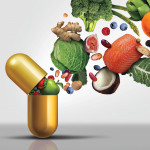Few among us during the COVID-19 pandemic did not slack on our eating habits, perhaps resulting in weight gain, and that’s understandable. Let’s start eating better again.
Follow these steps:
Make a food diary. “You have to know what you’re eating to make an intervention,” says Antonio Urbina, MD, who has been an HIV doctor for 25 years. For a week, write down what you eat for breakfast, lunch, dinner and snacks—and don’t forget beverages, including alcoholic ones.
Assess your diary, tweak your diet. Then go through your diary and note where you can make changes, says Urbina, with an emphasis on replacing sugar, fried foods and empty calories, like breads and white rice, with lean protein, like chicken, fish, tofu and eggs (minimize red meat), fruits and vegetables, filling dairy like yogurt, cheese, beans, healthy fats like those found in olive oil and avocado, and whole grains, like quinoa and oatmeal.
“If patients tell me they start the day with cereal, I suggest they try a hard-boiled egg with tomato and avocado,” says Urbina. “Replace soda with water or flavored seltzer. If you’re going to eat fast food, take one or both buns off that hamburger. Instead of a sandwich, do a salad.”
Think differently about what packs on the pounds. “I tell patients that you don’t get overweight from fats like egg yolks, butter and meat, as we once thought,” says Urbina, “but from empty carbs, like sugars, breads, pasta, French fries and white rice.”
Choose the lesser of evils. “If you really love fried foods,” says Urbina, “fried chicken is better than French fries,” because at least you’re getting the protein of the chicken versus the empty carbs of the fried potato.







Comments
Comments